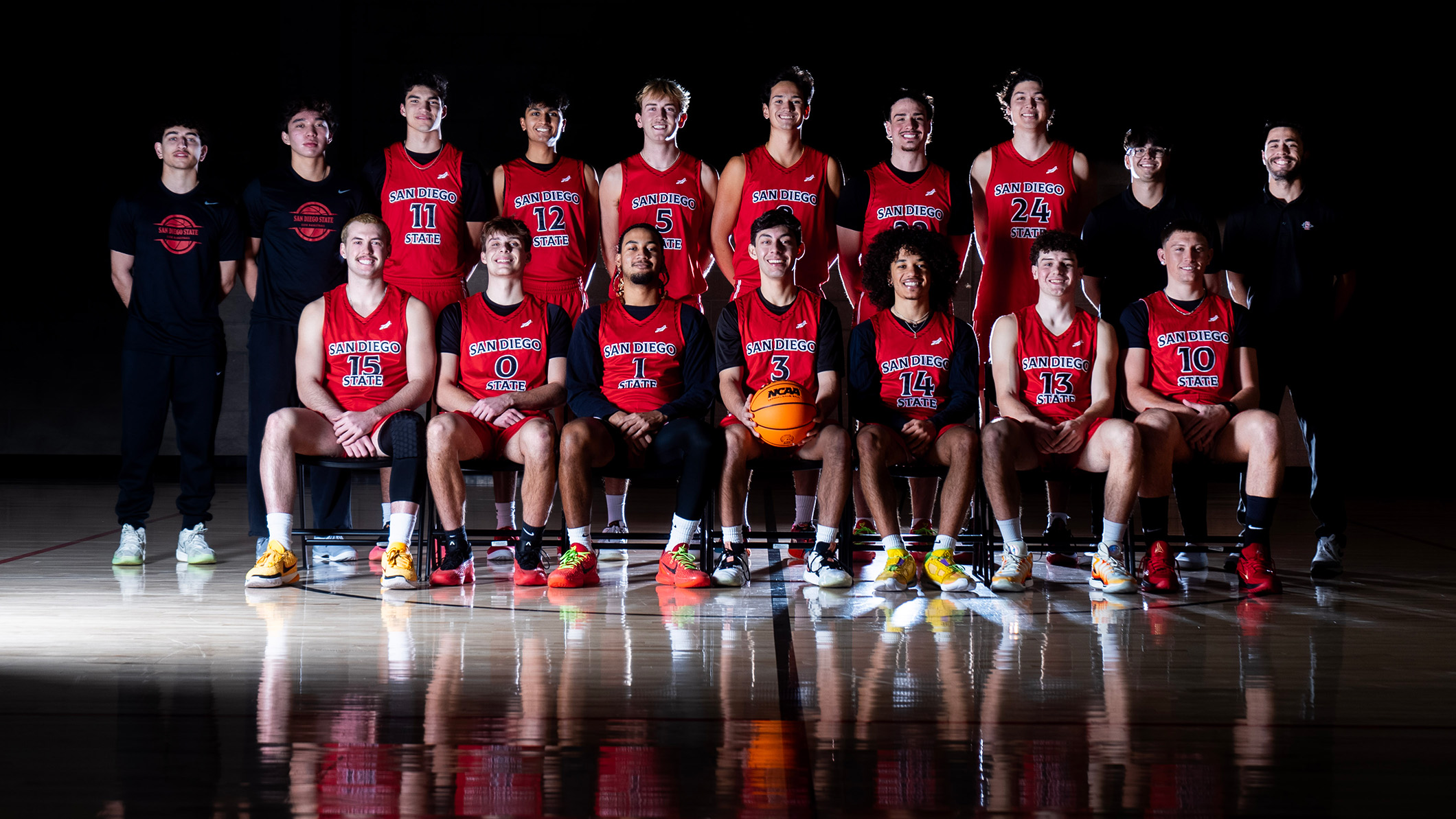Early Start (Ups)
The Zahn Center is an on-campus incubator at SDSU that helps student entrepreneurs turn their ideas into companies.

Vann Wesson and Ben Yeoman had a hobby, then an inspiration, then the beginnings of a plan.
The two friends and San Diego State University students enjoyed tinkering with robotics. After a chance encounter with a young woman who had no hand, they decided to create an affordable prosthetic for people who lost or were born without a limb.
They had drawings, a prototype developed in their basement, a lot of big ideas and …
And then they met Rich Kerr, who told them about the Zahn Center, which recently opened at SDSU. Suddenly, they had direction.
“One of the unique features we put here is something some of the high tech companies have in town, it’s a collaboration pit,” said Kerr, the director of the Zahn Center, an on-campus business incubator for student entrepreneurs.
“It’s white boards, couches and chairs. Come and invent, pound on the boards, anybody joins in, even other teams. This center is designed for a lot of collaboration, a lot of coaching, a lot of development.”
A place to learn and prepare
Kerr will mentor the fledgling entrepreneurs through the process of starting a company. When he believes they are ready, he will connect them with venture capitalists who could potentially invest in their businesses.
““This place is ... a dream come true for any would-be entrepreneur.””
For Wesson and Yeoman, and their company, REACH, the goal is to spend the next 18-24 months in the Zahn Center, developing their company, refining their product, tightening their business plan, shoring up their patents and absorbing the advice of mentors like Kerr.
“It will give us access to the engineering building here, all the machines down there. We built (our latest prototype) on the rapid prototyper there. We hope to develop our new prototype on that too,” said Yeoman, a bio-engineering major and the designer of REACH’s prosthetic hand.
“Especially valuable is the coaching Rich has been giving us,” added REACH CEO Wesson, a history and pre-law major. “This place is literally a guide — step one, step two, step three — on how to start a business. It’s a dream come true for any would-be entrepreneur.”
Irwin Zahn’s vision
A dream coming true thanks to long-time entrepreneur, Irwin Zahn, who wants students to have the opportunity to work for themselves, not just someone else.
“The reason behind the Zahn Center itself is to provide a place where you can go with tables and chairs and lockers and assembly equipment and test equipment; where you can develop your own products,” Zahn said. “And hopefully, the measure of success of an incubator of this sort will be how many companies are ultimately started here.”
Zahn is a member of the SDSU College of Engineering Dean’s Advisory Board and a longtime San Diego resident. The company he founded, Autosplice Inc., has employed dozens of SDSU engineering alumni. His $700,000 gift to SDSU’s College of Engineering is based on the premise that students have their own ideas and, with a little guidance, can be successful entrepreneurs who drive the economy forward.
“I think in terms of growing entrepreneurs, who in turn start companies, these companies then employ people,” Zahn said. “The people then buy automobiles, they buy food, they buy shoes. They enhance the community. By enhancing the community, they grow the region and in turn, grow the country as well.”
Supporters like Irwin Zahn, by providing unique opportunities such as the Zahn Center, are helping SDSU students to innovate and discover ways to drive California's economy forward, a key initiative of The Campaign for SDSU. Learn more about how SDSU is Leading in Innovation and Discovery.
The first group
The first five teams to enter the Zahn Center did so via the Zahn Incubator Challenge, a business plan competition. Three of those teams split $25,000 in prize money, also a gift from Zahn, to help seed their companies.
Other projects
In addition to REACH, teams currently working in the center include:
- Nextero, which placed first in the challenge, and is developing wheelchairs to function in non-ADA compliant settings
- Mobile Network Innovations, which is creating a wearable, wireless electronic device to identify potential business partners through intelligent profile matching
- Quanta Sciences, which is determining how to use smart materials and processes to generate electrical power from normal body functions
- Center Stage, which is creating online portfolios for young professionals looking to establish a personal brand.
“Ten teams submitted business plans,” said Kerr, a veteran entrepreneur and member of the San Diego business community. “We chose the top five to go on to the finals. But the other five are just as important to Irwin Zahn and us. Can we develop them to the point where they can win this competition next year?”
While the Zahn Center officially opened this spring, Kerr has been on campus mentoring students for several months and working to develop cross-campus collaboration. The College of Business Administration and the Entrepreneurial Management Center are already involved.
“"... the measure of success of an incubator of this sort will be how many companies are ultimately started here.””
And while focusing on the teams within the Zahn Center, Kerr will also be working with the region’s business community. He wants industry partners to be involved and to understand the depth and breadth of talent and ideas being germinated at SDSU.
“One of the things I hope comes out of this is that people look to us and say ‘I want to fund a company, I want to find someone to fund in my portfolio, and if they come out of this program I know they’re top notch,’” Kerr said.
And student entrepreneurs, like the founders of REACH, now have a path they hope will turn their inspiration into a reality.
“The vision of REACH is to make it so there are no more amputees without a hand,” Wesson said. “We want to eradicate limblessness.”
The Zahn Center




